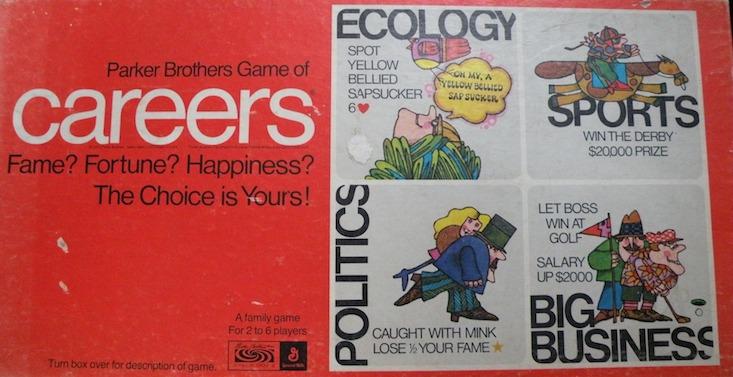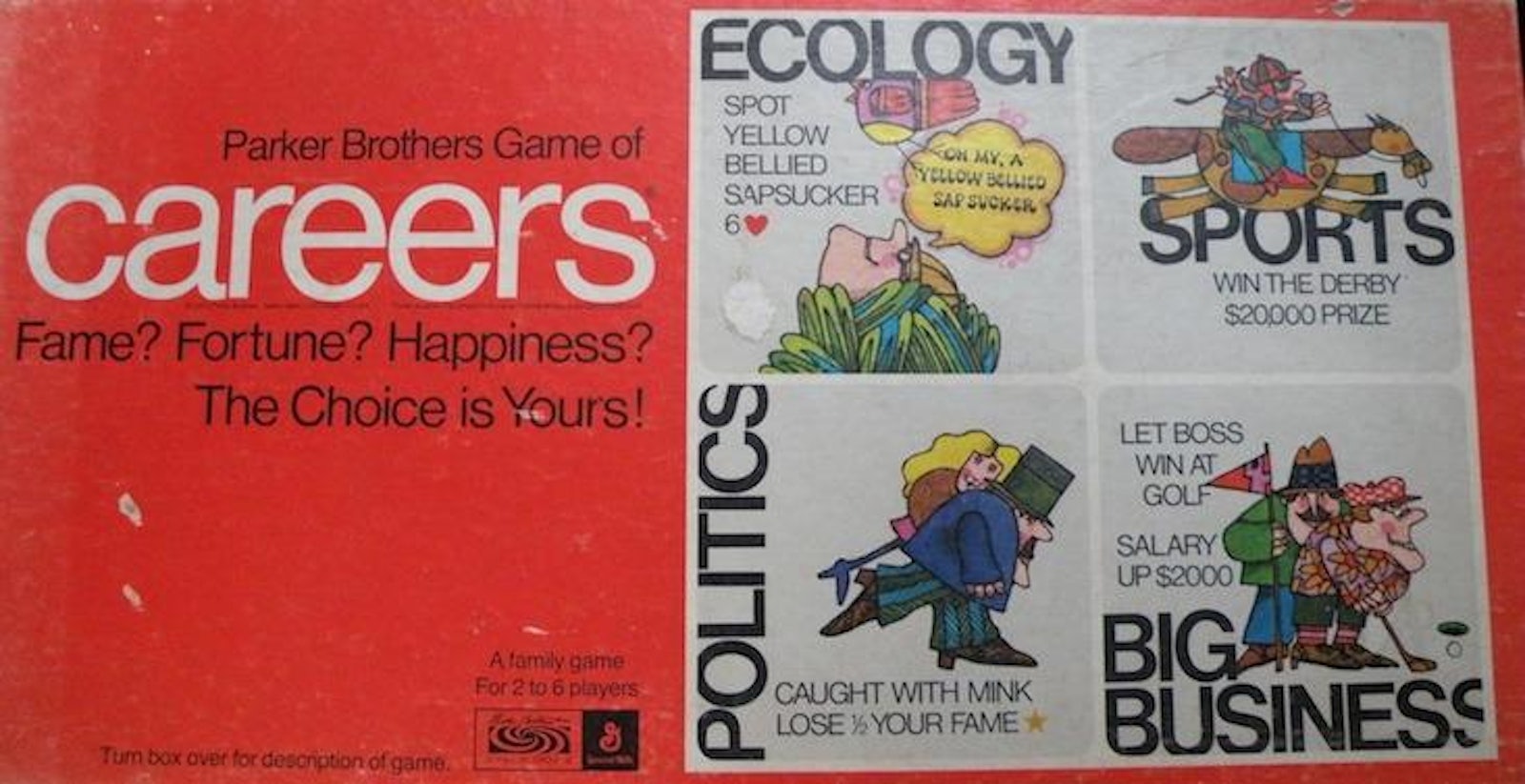It’s your last year of college and you’re trying to answer the dreaded question of what comes next. Whether your major once seemed incredibly broad or totally specialized, you’ve realized that the path ahead is still wide open. It’s a huge decision, of course, so you want to make sure you’re fully informed. You’ve thought about becoming a professor, and (as luck would have it) as a college senior, you’re surrounded by professors in all directions. You show up to office hours with your favorite teachers and try to ask all the smart questions: What does the professor think of her job? What are the pros and cons? Would she recommend that you follow in her footsteps?

At first glance, this seems like a reasonable way to learn about a career—just ask the people who have it. But this strategy is actually guaranteed to give you a misleading perspective, because somewhere out there is a large group of people who wanted to become professors and either didn’t make it or didn’t like it. Perhaps they struggled through seven years of grad school, only to discover at the end of the road there were 20 qualified applicants for every position. Those people will have a very different view of whether the work was worth it. And it’s likely you won’t interview them.
“If you never knew anyone who was a carpenter, you’re very unlikely to even consider being a carpenter.”
This is an example of what statisticians call selection bias: treating a non-representative sample as if it represents the whole. If your only exposure to Fijians is watching their rugby team win gold at the Olympics, and you say to yourself, “Wow, everyone in Fiji is so athletic!” you’re clearly suffering from selection bias—the Fijian rugby team was not plucked at random from the general Fijian population. But the same problem applies to asking your doctor friends whether it’s worth going to med school: In so many ways, the people who become doctors are not representative of all the people who once wanted to but are now doing something else.
Unfortunately, the selection-bias problems with career choice don’t stop there. “We mostly get ideas about different jobs from our friends and family, who are generally very unrepresentative of the wider population,” says Jess Whittlestone, a doctoral candidate at Warwick Business School who studies biases and writes about career decisions. “This means the jobs we consider in the first place are going to be limited—if you never knew anyone who was a carpenter, you’re very unlikely to even consider being a carpenter.”
Because we’re all influenced by the choices of those around us, this problem can compound to create “a kind of echo chamber or a self-fulfilling prophecy when it comes to bias and stereotypes associated with jobs,” says Whittlestone. For example, “if few women go into software engineering,” she says, “then many women won’t even considersoftware engineering as a possible career for them, which means fewer women go into software engineering…even if there was no good reason initially that women wouldn’t enjoy or be good at it.”
Selection bias is not the only problem with interpreting our beliefs about careers. The psychologist Peter Wason invented the term “confirmation bias” to critique the way that people tend to focus on hypotheses they already believe, seeking confirmation, and ignore other possible hypotheses without testing them. For example, if I decided as a child that I only liked red fruits, I could easily go through life eating strawberries, watermelon, and cherries, and telling myself each time, “Yes, it’s true—I only like red fruit.” But this is mistaken thinking. What I really need to do is occasionally taste some pineapples, pears, and blueberries; perhaps I’ll discover that many non-red fruits are delicious as well.
Similarly, I might originally tell myself that I could never handle an office job, or that I hate working with numbers, or that I only want to live in New York. While it’s possible to go through life only considering careers that match my preconceptions, if I proactively try to disprove my beliefs, I might be pleasantly surprised.
But how do you test negative hypotheses in your career search? “Putting on my HR hat, it’s not a great thing if I seek out a job I think I’m not going to like, and then I leave after six months,” says Paul Wolfe, Senior Vice President for Human Resources at jobs search engine Indeed.com. “But I do like the idea of testing the negative.” A better solution, he suggests, might be “reaching out to people who do the job I don’t think I want to do. I don’t think I want to be an accountant, but let me network with an accountant and test out my theory that I truly wouldn’t like that job.”
If you’re still in high school or college, perhaps it also makes sense to try casting your net wider for work-shadowing or internships and testing out some options that might surprise you, suggests mathematics writer Kalid Azad. Many of us, he suspects, fall prey to hyperbolic discounting, a model that suggests we over-value immediate rewards and under-value rewards in the future.
“I could spend a week now shadowing a professor, seeing what the job is really like, but I want to go to on a trip instead,” says Azad. “I’m trading information that could improve the next 20 years of my life for one event! But because of hyperbolic discounting, the net present value of the next 20 years is so low I think the one week of effort to shadow the professor isn’t worth it—and anyway, the next 20 years is a problem for future-me.”
Perhaps, to combat hyperbolic discounting, we should all self-consciously be more open to more experiments and possibilities. But that, too, has risks; it is possible to become immobilized by too many options. How do you find a happy balance? There’s no easy answer. However, an awareness of common pitfalls in thinking about career choices can at least make you less cocksure about the decisions you take, and more sensitive to the possibility that the information you acted on wasn’t complete. That kind of nuanced thinking will surely make your professors proud, whatever career path you take.
Uri Bram is the author of Thinking Statistically, an informal primer on the big ideas from statistics. Follow him on Twitter @UriBram.
Watch: “There’s nothing in modern physiology that supports the idea that we make complex decisions consciously.”

The lead image is courtesy of Kate via Flickr.






























